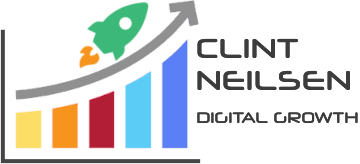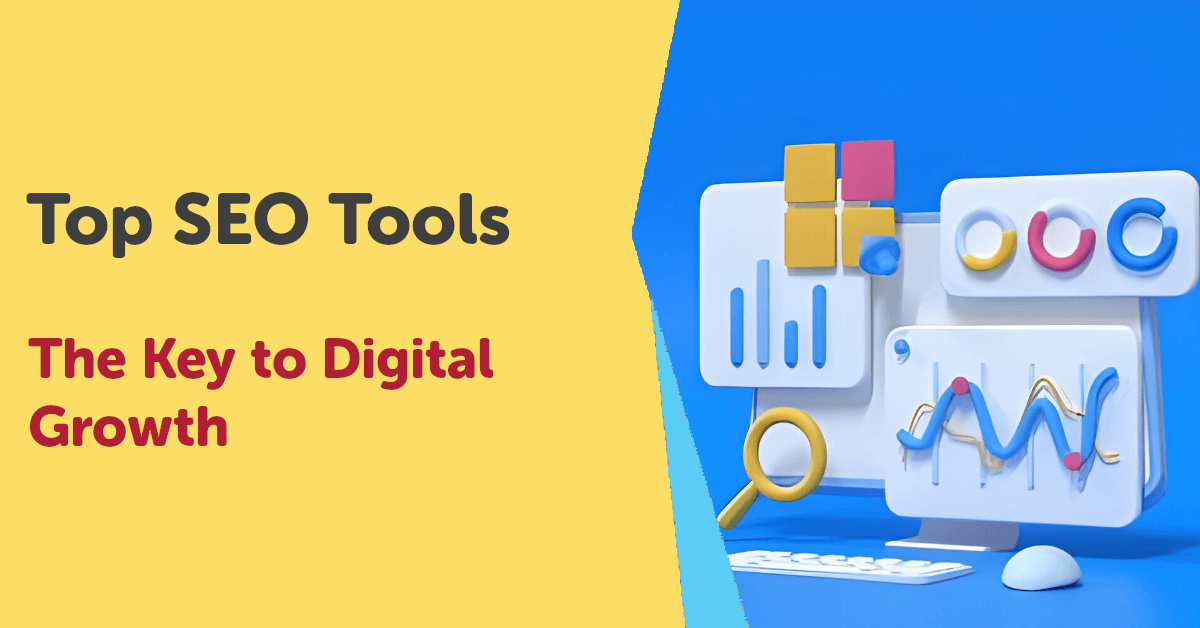
I remember back when the term SEO – that’s Search Engine Optimization, mates – was still a new kid on the block. The internet was growing, but it wasn’t what it is today. Nowadays, it’s all about showing up on Google. If your website doesn’t exist for Google, then it’s like your website doesn’t exist at all.😱This is where knowledge of the Top SEO Tools to use becomes important.
Search Engine Optimisation (SEO) Overview
Search Engine Optimization, or SEO as it’s commonly referred to, is the art and science of getting your website to show up in search engine results. Now, you might be wondering, “Why on earth do I need to worry about showing up on Google or Bing?” Well, the answer is pretty straightforward.
You see when folks are looking for a product or service, they typically start with a search engine. And more often than not, they don’t go past the first page of search results. So, if your website isn’t showing up on that coveted first page, you’re pretty much invisible. It’s like throwing a party and forgetting to send out the invitations! 😔
That’s where SEO comes in. By using a mix of strategies like selecting the right keywords, improving your site’s speed, and building high-quality links, you can give your website a fighting chance to show up in those crucial search results.
Importance of SEO in digital growth
SEO is pretty much the bread and butter of digital growth. Think about it, folks. We live in a digital age, where people are constantly connected and online. Heck, I can’t remember the last time I went a day without checking my phone! It’s an integral part of our lives, and businesses must tap into that.
By leveraging SEO, you can increase your online visibility, attract more visitors, and ultimately, drive more sales. It’s like having a high-street shop in the most popular part of town. Everyone is passing by, and there’s a higher chance they’ll step in and buy something. And the best part? It’s open 24/7! 🚀
Introducing SEO tools
So, we’ve established that SEO is important. But here’s the kicker: SEO is not a set-it-and-forget-it kind of deal. It requires continuous effort, and trust me, it’s not easy. You have to constantly monitor your website’s performance, track your rankings, and stay on top of industry changes. Sound like a lot of work? Well, it can be. But that’s where SEO tools come in.
These nifty software applications and platforms can help simplify the process. They can do everything from tracking your rankings and identifying technical issues on your website to helping you find the right keywords. And they can save you a ton of time and effort in the process. 🕒
The Basics of SEO
Alright, let’s get back to basics. Before we jump into the nitty-gritty of SEO tools, let’s first understand the foundational elements of SEO.
Why it is crucial for a website’s success
Your website is your digital storefront, your online business card. It’s your chance to make a great first impression, showcase your products or services, and convince visitors to take action. But for all that to happen, people first need to find your website. And that’s where SEO comes in.
By optimizing your website for search engines, you’re effectively making it easier for them to understand your content, which in turn, increases the chances of your site showing up when someone searches for a product or service you offer. And more visibility equals more visitors, and ultimately, more customers. It’s like a domino effect but in a good way! 🎯
But it’s not just about attracting more visitors. SEO is also about attracting the right visitors. By using the right keywords and creating high-quality, relevant content, you can attract visitors who are more likely to be interested in what you have to offer. It’s like fishing with the right bait – you’re more likely to catch the fish you want. 🎣
Primary components of SEO
Now, SEO might seem like a complex beast, but when you break it down, it’s made up of a few key components. First up, we’ve got keywords. These are the terms and phrases that people are searching for. By incorporating these into your website, you’re essentially telling search engines what your content is about. But remember, it’s not just about stuffing your content with keywords. They need to be used in a natural, meaningful way.
Then, we have backlinks. These are links from other websites to yours. Think of them as votes of confidence. The more high-quality backlinks you have, the more likely search engines are to view your website as authoritative and trustworthy. And last but certainly not least, there are meta tags. These are snippets of text that describe a page’s content and don’t appear on the page itself but in the page’s code. While they might not be visible to visitors, they’re incredibly important for search engines. Meta tags can help search engines understand your content and are a crucial part of SEO.
Regular website optimisation
SEO is not a one-and-done kind of deal. It’s a continuous process. Why? Well, for starters, search engine algorithms are constantly changing. What worked a year ago might not work today. Not to mention, your competitors aren’t standing still. They’re constantly optimising their websites and trying to outdo you.
Regularly optimising your website helps you stay competitive. It’s like keeping up with the Joneses but in the digital world. Plus, it’s not just about maintaining your rankings. Regular optimizations can also help improve your website’s user experience, which can lead to higher conversion rates. So it’s a win-win!
The Necessity of SEO Tools
Now that we’ve covered the basics of SEO, let’s move on to SEO tools. If you’re thinking, “Do I really need these?”, the answer is a resounding yes. SEO tools are not just nice to have; they’re a necessity in today’s digital landscape.
How SEO tools can enhance your strategy
First off, SEO tools can give you a wealth of insights. They can help you identify which keywords are driving traffic to your website, which pages are most popular, and where your traffic is coming from. And these insights can be incredibly valuable in shaping your SEO strategy. It’s like having a crystal ball that can tell you what’s working and what’s not. 🔮
Additionally, SEO tools can also help you identify opportunities for improvement. They can help you find broken links, identify duplicate content, and even give you suggestions for optimizing your meta tags. In other words, they can help you fine-tune your website and make it more search engine-friendly.
The role of SEO tools in understanding your website’s performance
SEO tools also play a crucial role in understanding your website’s performance. By providing data on metrics like traffic, bounce rate, and conversion rate, they can give you a better understanding of how your website is performing and where there’s room for improvement. It’s like having a personal trainer for your website, pushing you to do better and reach your full potential.
But it’s not just about data. SEO tools also provide actionable insights.
Sure, let’s continue.
They can help you identify issues that could be impacting your site’s performance, like slow loading times or broken links, and suggest ways to fix them. They can also provide recommendations for optimizing your content, like adding more keywords or improving your meta descriptions. In other words, SEO tools don’t just give you data; they give you the information you need to take action and improve your site’s performance.
Overview of different types of SEO tools
There are tonnes of different SEO tools out there, each with its strengths and weaknesses. Here are a few types that you should be aware of:
- Keyword research tools like Google Keyword Planner or SEMrush can help you identify keywords that are relevant to your business and have a high search volume. This can help you optimize your content and increase your visibility in search results.
- Technical SEO tools like Screaming Frog or Lumar can help you identify technical issues on your website, like broken links or slow loading times, that could be impacting your site’s performance.
- Backlink analysis tools like Ahrefs or Majestic can help you understand who’s linking to your website and how these backlinks are impacting your site’s authority.
- Rank tracking tools like Moz or SERanking allow you to track your site’s rankings in search results over time. This can give you a sense of how your SEO efforts are paying off and where there’s room for improvement.
- Content optimization tools like Surfer SEO or Clearscope can help you optimize your content for specific keywords, increasing your chances of ranking higher in search results.
- SEO analytics tools like Google Analytics or Plausible Analytics can provide valuable insights into your website’s performance, like which pages are driving the most traffic and where your visitors are coming from.
Choosing the right SEO tools can make a big difference in your SEO efforts. It’s all about finding the ones that best meet your needs and complement your strategy.
Closing Notes: Top SEO Tools
SEO is crucial for any business looking to grow and thrive in the digital age. It’s all about optimizing your website to attract more visitors, drive more sales, and ultimately, grow your business. And with the help of SEO tools, you can supercharge your efforts, making your website more visible, more attractive, and more effective.
Remember, SEO is a marathon, not a sprint. It takes time, effort, and a whole lot of patience. But with the right approach and the right tools, you can reach that coveted first page of search results. So keep optimizing, keep improving, and keep growing. The digital world is yours for the taking! 🚀


